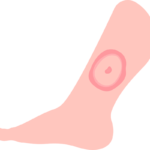
The idea of taking a spoonful of something to fall asleep almost instantly, stay asleep, and wake up refreshed may sound appealing, but it’s important to approach such claims with caution. Sleep is a complex process influenced by various factors, and there is no magical or one-size-fits-all solution for achieving perfect sleep. Instead, it’s best to focus on proven strategies for improving sleep quality and duration. Here are some tips to help you achieve better sleep:
1. Maintain a Consistent Sleep Schedule:
- Go to bed and wake up at the same time every day, even on weekends.
- This helps regulate your body’s internal clock and can improve the quality of your sleep.
2. Create a Relaxing Bedtime Routine:
- Develop a calming pre-sleep routine, such as reading a book, taking a warm bath, or practicing relaxation techniques like deep breathing.
- Avoid stimulating activities, bright screens, or intense conversations before bedtime.
3. Make Your Sleep Environment Comfortable:
- Ensure your bedroom is cool, dark, and quiet.
- Invest in a comfortable mattress and pillows.
- Remove or reduce sources of noise and light that may disrupt your sleep.
4. Limit Exposure to Screens:
- Avoid screens (smartphones, tablets, TVs, computers) for at least an hour before bedtime.
- The blue light emitted from screens can interfere with your sleep-wake cycle.
5. Be Mindful of Your Diet:
- Avoid large meals, caffeine, and alcohol close to bedtime.
- These can disrupt your sleep patterns and make it more difficult to fall asleep.
6. Get Regular Exercise:
- Engage in regular physical activity, but avoid intense workouts close to bedtime.
- Exercise can promote better sleep, but timing matters.
7. Manage Stress:
- Practice stress-reduction techniques, such as meditation, progressive muscle relaxation, or mindfulness.
- High stress and anxiety can interfere with your ability to fall asleep.
8. Limit Naps:
- If you need to nap during the day, keep it short (20-30 minutes) and earlier in the day to avoid interfering with nighttime sleep.
9. Watch Your Liquid Intake:
- Limit the consumption of fluids close to bedtime to reduce the likelihood of waking up during the night to use the bathroom.
10. Seek Professional Help: – If you continue to experience sleep problems despite trying these strategies, consult a healthcare provider or a sleep specialist.
Remember that achieving quality sleep is a gradual and ongoing process that requires consistency and patience. While there are many products and remedies marketed as sleep aids, it’s essential to be cautious and consult with healthcare professionals before trying any new substances. What works for one person may not work for another, and there are no quick fixes when it comes to achieving restful and refreshing sleep.


